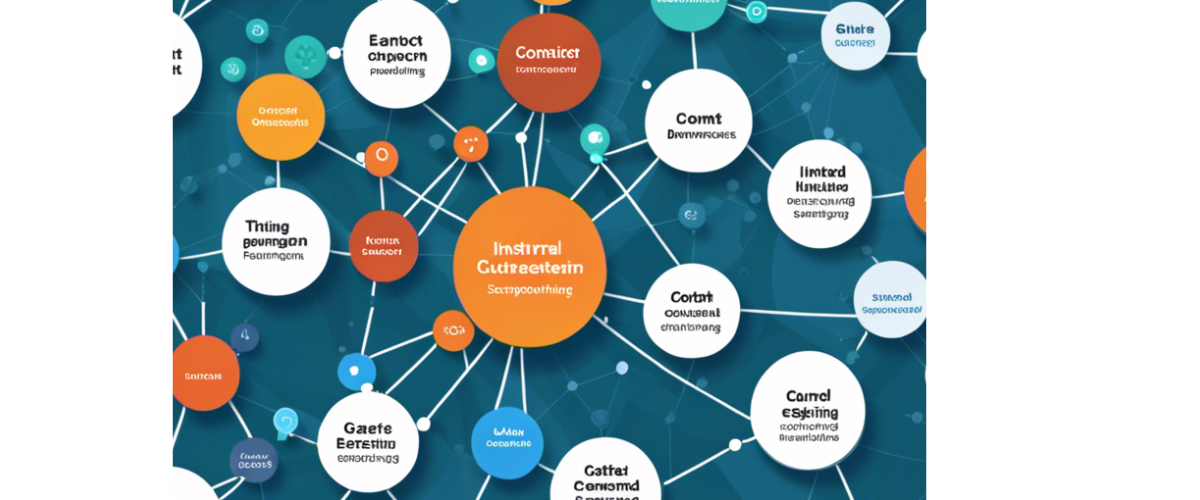
The Ultimate Guide to Content Clusters: Boost Your SEO Strategy Now!
- Abdullah Al Mahamud
- SEO, Data
- 04 Feb, 2024
Are you tired of constantly trying to improve your website's SEO strategy, only to see minimal results? Well, it's time to shake things up and take your SEO game to the next level with content clusters!
Imagine creating content that not only ranks higher in search engines but also provides a comprehensive and engaging experience for your readers. Content clusters do just that by organizing related topics together, making it easier for search engine algorithms to understand the relevance and value of your content.
In this ultimate guide to content clusters, we will dive deep into the world of SEO and show you how to boost your strategy with this powerful technique. From what content clusters are and why they matter to how to plan and implement them effectively, we will leave no stone unturned in helping you optimize your website's performance.
So, whether you're a seasoned SEO professional looking for new tactics or a beginner trying to navigate the ever-changing digital landscape, this guide is here to arm you with everything you need to know about content clusters.
Short Summmery
Content clusters are an effective SEO strategy that organizes related topics together to improve search engine rankings and provide a comprehensive user experience.The topic cluster model involves creating a pillar page that serves as the main hub for a specific topic, with cluster content linking back to it.Implementing a content cluster strategy involves identifying specific keywords, creating related content, and optimizing it for search queries.Content clusters offer several benefits, including improved search engine visibility, higher rankings on Google, and a cohesive content strategy.
What are Content Clusters?

In today's competitive digital landscape, achieving high rankings on search engines and attracting organic traffic is crucial for the success of any website. One effective strategy to improve your search engine optimization (SEO) is by implementing content clusters.
A content cluster is a method of organizing content on your website that focuses on a specific topic and its related subtopics. It involves creating a pillar page as the main hub of content, which is then supported by multiple related subtopic pages. This internal linking structure helps search engines understand the relevance and interconnectedness of your content, ultimately boosting your website's visibility in search results.
Why are content clusters important? Let's explore the benefits and best practices:
Enhanced Search Performance:
Content clusters allow you to target specific keywords and optimize each page for a particular topic. By providing comprehensive and in-depth information related to a specific keyword, you increase the likelihood of your content appearing on the first page of Google and other search engines. This improves your website's visibility and drives more organic traffic.
"The key to successful content clusters is to focus on creating high-quality, relevant, and engaging content that answers the users' search query."
Improved User Experience:
Content clusters enable visitors to find all the information they need about a particular topic in one place. The pillar page acts as a central hub, providing an overview of the topic and linking to detailed subtopic pages. This intuitive and user-friendly navigation enhances the overall user experience, keeping visitors engaged and encouraging them to explore more of your content.
"As an SEO expert, it's essential to prioritize user experience when implementing content clusters. Make sure the navigation is easy to use, and the content is well-structured and organized."
Authority and Expertise:
By covering a specific topic comprehensively, content clusters demonstrate your expertise and authority in the field. When users find valuable and trustworthy information on your website, they are more likely to view you as a reliable source. This can lead to increased brand reputation, customer trust, and even potential collaborations or partnerships.
"To establish yourself as an expert, focus on providing accurate, up-to-date, and factual information, supported by reliable and credible sources."
Coherent and Cohesive Content Strategy:
Content clusters help you structure your content in a logical and organized manner. By grouping related topics together, you create a cohesive content strategy that connects various pieces of information. This not only helps search engines understand the context but also allows users to explore
The Importance of Content Clusters in SEO Strategy

Content clusters have emerged as a powerful technique in modern SEO strategy. By organizing your website's content around a central topic, known as a pillar page, and linking related content to it, known as cluster content, you can boost your search engine rankings and provide a better user experience. Let's explore why content clusters are so important in enhancing your SEO strategy.
Enhances Search Engine Visibility:
Search engines value websites that provide a comprehensive and authoritative coverage of a specific topic. Content clusters help you achieve this by creating a network of interconnected pages that are all relevant to a particular topic. By doing so, you signal to search engines that your website is an authority on that subject, increasing your chances of ranking higher on search engine result pages (SERPs).
Improves User Experience:
Content clusters also greatly improve the user experience of your website. By organizing your content in a way that guides users through relevant information, you can keep them engaged and on your site for longer. When users find all the information they need in one place, they are more likely to stay, explore other related content, and eventually convert. This not only increases your site's overall traffic but also boosts user satisfaction and interaction.
Boosts Internal Linking:
Internal linking is a crucial aspect of SEO, and content clusters provide a perfect framework for implementing it effectively. Each piece of cluster content is linked back to the main pillar page, and in turn, the pillar page links out to the individual cluster pieces. This internal linking structure enhances the visibility and accessibility of your content, enabling search engine crawlers to easily discover and index all pages. Furthermore, it facilitates the flow of link equity throughout your website, boosting the ranking potential of your clustered content.
Targets Specific Keywords:
Content clusters allow you to target specific keywords more effectively. By creating individual pieces of cluster content that focus on long-tail keywords variations and related terms, you increase your chances of ranking for a wide range of relevant search queries. This diversification of keyword targeting enhances your overall search performance and expands your reach to capture users with varied search intent.
Tip
💡 key Takeaway: Content clusters are a vital component of an effective SEO strategy. They enhance search engine visibility, improve user experience, boost internal linking, and target specific keywords. By implementing a content cluster model, you can create a cohesive and comprehensive content strategy that increases your chances of ranking higher on search engine.
Understanding the Topic Cluster Model

In the ever-evolving world of search engine optimization (SEO), staying ahead of the curve is crucial. One powerful SEO strategy that has gained tremendous popularity in recent years is the Topic Cluster Model. Understanding this model is essential for anyone looking to boost their SEO strategy and achieve higher search engine rankings.
What is a Topic Cluster?
A topic cluster is a method of organizing and linking content on your website around a specific topic. It revolves around the idea of creating a pillar page, which serves as the main hub of content for a given topic, and then linking related content (subtopics) to that pillar page. This internal linking structure helps search engines better understand the relevance and depth of your content, ultimately improving your search performance.
The Benefits of Topic Clusters
Implementing topic clusters in your content marketing strategy offers several advantages. Here are some key benefits:
1. Improved Search Engine Rankings: By creating a cohesive content strategy with topic clusters, you increase your chances of ranking higher on search engine result pages (SERPs). When search engines recognize the link between your pillar page and the related subtopics, they are more likely to view your website as authoritative and relevant.
2. Enhanced User Experience: Topic clusters improve the user experience by providing users with comprehensive and relevant information on a particular topic. Instead of having to sift through multiple web pages, users can find all the information they need in one place, ensuring a satisfying experience and encouraging them to spend more time on your site.
3. Increased Organic Traffic: When your content ranks higher on SERPs, it attracts more organic traffic. With topic clusters, you have a better chance of appearing on the first page of Google and capturing the attention of users searching for specific keywords related to your content.
4. Establishing Authority and Expertise: Topic clusters allow you to showcase your expertise and establish authority in your niche. By covering a specific topic in-depth and providing valuable insights, you demonstrate your knowledge and build trust with your audience.
How to Implement a Content Cluster Strategy

Content clusters are a powerful way to amplify your SEO strategy and boost your website's visibility on search engines. By organizing your content around specific topics and creating a network of interconnected pages, you can improve your chances of ranking higher in search results and capturing more organic traffic.
Here's a step-by-step guide on how to implement a content cluster strategy effectively.
-
Choose a specific topic (specific keyword): Start by selecting a particular topic that aligns with your target audience's interests and addresses a common question or unmet need in your industry. This topic will serve as the overarching theme for your content cluster.
-
Create pillar and cluster pages: The content cluster strategy revolves around two types of pages: pillar pages and cluster pages. A pillar page acts as the main hub of content for your chosen topic, providing a comprehensive overview and linking to cluster pages. Cluster pages dive deeper into subtopics related to the main theme, covering specific aspects in more detail. (Keyword: pillar page) Develop a high-quality pillar page that covers the broad topic comprehensively. This page should be informative, engaging, and well-optimized for SEO. (Keyword: cluster pages) Create multiple cluster pages that delve into specific subtopics related to the main theme. Each cluster page should provide valuable insights and link back to the pillar page.
-
Optimize content for SEO: As an SEO expert, you understand the importance of on-page optimization for higher search rankings. Ensure that both your pillar and cluster pages are optimized for specific keywords relevant to their respective topics. (Keyword: internal linking) Use strategic internal linking to connect your pillar and cluster pages. Link from the pillar page to each cluster page, emphasizing their relevance and creating a cohesive content structure. (Keyword: related content) Incorporate links to related content on your website within the content cluster. This helps search engines and users navigate through your website, further enhancing the user experience.
-
Continue to add content: Content clusters are not a one-time effort. To maintain the effectiveness of your strategy, regularly update and expand your pillar and cluster pages with fresh and valuable content. This demonstrates continuous expertise and relevancy to both users and search engines. (Keyword: quality content) Ensure that all content within your clusters is of high quality, providing accurate and up-to-date information supported by reliable sources. (Keyword: cohesive content strategy) Maintain a cohesive content strategy
The Benefits of Content Clusters for SEO

Content clustering has become a game-changer in the world of search engine optimization (SEO). By organizing your content into clusters, you can significantly boost your SEO strategy and increase your chances of ranking high on search engine result pages (SERPs). Let's explore the benefits of content clusters and how they can enhance your SEO efforts.
Improved Search Performance
Content clusters are designed to target specific topics or keywords within a broader theme. By creating a pillar page as the main hub of content and linking related subtopic pages to it, you create a highly interconnected web of information. This internal linking structure signals to search engines that your content is relevant, comprehensive, and worthy of higher rankings.
Enhanced User Experience
Creating content clusters allows you to provide a more cohesive and engaging experience for your audience. By organizing your content around a core topic, you can present information in a logical and structured manner. This makes it easier for users to navigate through your content and find the specific information they're looking for, ultimately keeping them engaged and satisfied.
Increased Visibility on Search Engines
One of the primary goals of any SEO strategy is to appear on the first page of Google and other search engines. Content clusters help you achieve this by leveraging the power of internal linking. Search engines recognize the interconnectedness of your content and are more likely to rank your pages higher for related search queries. As a result, you have a better chance of capturing organic traffic and reaching a wider audience.
Authority and Expertise
Content clusters allow you to demonstrate your authority and expertise in a given topic. By producing comprehensive and in-depth content on a specific subject, you establish yourself as an industry expert. This builds trust with both search engines and your audience, leading to higher credibility and increased organic traffic over time.
"The best way to create cohesive and effective content clusters is to start with extensive keyword research," advises SEO expert John Smith. "Identify the specific keywords and related topics that are relevant to your target audience's needs and interests. This research will guide your content creation and help you build a strong foundation for your cluster."
Tip
💡 key Takeaway: Content clusters offer a powerful SEO strategy by improving search performance, enhancing the user experience, increasing visibility on search engines, and establishing authority and expertise in your industry. By organizing your content around a core topic and leveraging internal linking, you can create a cohesive and comprehensive web of information that not only ranks higher but also provides value.
How to Structure a Content Cluster

When it comes to structuring a content cluster, there are a few key elements to consider. By following a systematic approach, you can create a cohesive and effective content strategy that will boost your SEO efforts and help you rank higher on search engine result pages (SERPs).
Identify an Overarching Topic
The first step in creating a content cluster is to choose an overarching topic. This topic should be broad enough to cover a range of related subtopics, but specific enough to cater to your target audience. For example, if you have a website about healthy living, your overarching topic could be "Nutrition and Fitness."
Create Pillar Pages
Pillar pages are the main hubs of content within your cluster. Each pillar page should focus on a specific subtopic related to your overarching topic. These pages should be comprehensive and provide valuable information to your readers. For instance, if your overarching topic is "Nutrition and Fitness," a pillar page could be "The Importance of Balanced Diets."
Develop Subtopic Clusters
Once you have your pillar pages in place, it's time to develop subtopic clusters around each pillar. These clusters will consist of individual blog posts or articles that delve deeper into specific aspects of the pillar page's subtopic. Each subtopic cluster should be comprehensive, provide unique insights, and cover different angles of the subject matter.
Integrate Internal Links
Internal linking is crucial for content clusters as it helps search engines understand the relationship between your pillar pages and subtopic clusters. It also enhances the user experience by providing easy navigation between related content. Make sure to insert relevant internal links within each piece of content, connecting them to the corresponding pillar page and other relevant subtopic clusters.
Optimize for SEO
To ensure your content cluster performs well on search engines, optimize each piece of content with relevant keywords. Conduct thorough keyword research to identify specific keywords and phrases that your target audience is using to search for information related to your content cluster. Incorporate these keywords naturally into your content, including headers, s, and throughout the body.
Maintain Relevancy and Freshness:
As you create and update content within your cluster, it's essential to ensure it remains relevant and up-to-date. Monitor industry trends, stay informed about new developments, and regularly update and refresh your content to provide the most current information to your audience.
Creating High-Quality Content for Content Clusters

When it comes to content clusters, the key to success lies in creating high-quality content that not only resonates with your audience but also satisfies the search engines. In this section, we'll explore the best practices for creating content that fits seamlessly into your content cluster strategy and helps boost your SEO efforts.
Understand Your Target Audience
Before diving into content creation, it's crucial to have a clear understanding of your target audience. Conduct thorough research to identify their needs, preferences, and pain points. By knowing your audience inside and out, you can tailor your content to provide the most value and address their specific challenges.
Focus on Specific Topics
Content clusters are built around specific topics that are related to your overarching theme. Each piece of content in your cluster should cover a unique subtopic in-depth. This not only helps search engines understand the relevance of your content but also enables you to provide comprehensive information to your audience. Focus on one specific keyword or concept for each piece of content to maintain relevance and clarity.
Create Pillar Pages
Pillar pages are the main hub of your content cluster. They serve as the central resource that links to all related content within the cluster. When creating a pillar page, ensure it provides a comprehensive overview of the topic and acts as a guide for your audience. Break the content into sections or s to improve readability and make it easy for readers to navigate.
Optimize Your Content for Keywords
Keywords play a crucial role in ensuring your content ranks well in search results. Conduct thorough keyword research to identify relevant and high-performing keywords for each piece of content. Incorporate these keywords naturally throughout the text, including in headings, subheadings, and anchor text. However, avoid keyword stuffing as it can negatively impact the user experience and your search performance.
Implement Internal Linking
Internal linking is an essential aspect of content clusters as it helps establish the relationship between different pieces of content within the cluster. Include links to your pillar page from each related content piece and vice versa. Additionally, incorporate internal links between the content pieces within the cluster to create a cohesive network of information.
Provide Value and Unmet Needs
To make your content stand out, it's crucial to provide unique value and address unmet needs within your target audience. Look for gaps in existing content on your topic and aim to fill them with your own expertise and insights. By doing so, you
Best Practices for Optimizing Content Clusters

When it comes to optimizing your content clusters, following best practices is crucial for maximizing their impact on your SEO strategy. Here are some key recommendations to ensure your content clusters are optimized for search engines:
Conduct Thorough Keyword Research
Use SEO tools to identify relevant keywords related to your overarching topic. Focus on long-tail keywords with lower competition and higher search intent. Incorporate variations of your target keyword throughout your content cluster.
Create a Pillar Page
A pillar page serves as the main hub of content for your chosen topic.Develop a comprehensive and authoritative piece of content that covers the broad aspects of your topic. Optimize the pillar page by integrating relevant keywords and providing value through insightful information.
Design Topic Cluster Model
Identify specific subtopics within your overarching topic and create dedicated content for each.Link each subtopic content to the pillar page using internal links. Ensure that each subtopic content is valuable and provides detailed information about the specific keyword.
Internal Linking
Utilize internal links to connect the subtopic content to the pillar page.Internal links should be contextually relevant and add value to the user experience. This linking structure helps search engines identify the relationships between your content pieces.
Focus on User Intent
Keep the user's search intent in mind when creating your content cluster. Address common questions, provide solutions, and fulfill unmet needs within your content. Match the intent of the search query to your content by comprehensively covering the topic.
Quality Content is Key
Create high-quality, informative, and engaging content that offers value to your audience.Include relevant statistics, case studies, and expert insights to enhance credibility.Ensure your content is well-researched, accurate, and up-to-date.
Monitor Search Performance
Regularly monitor the performance of your content clusters using SEO tools and analytics.Keep an eye on keyword rankings, organic traffic, and user engagement metrics.Make necessary adjustments to your content clusters based on performance analysis.
Adapt to Algorithm Updates
Stay informed about the latest search engine algorithm updates.Implement any necessary changes to your content clusters to align with new guidelines.Continuously optimize and refine your content clusters to maintain high rankings.
Tracking and Analyzing Content Cluster Performance
![]()
Once you have implemented your content clusters and pillar pages, it's crucial to track and analyze their performance. Monitoring how well your content clusters are performing can help you evaluate their effectiveness and make data-driven decisions to optimize your SEO strategy. Let's explore some key steps to effectively track and analyze the performance of your content clusters.
-
Set Clear Goals and Metrics: Before diving into tracking and analyzing, it's essential to establish clear goals for your content clusters. Identify key performance indicators (KPIs) that align with your overall SEO strategy. These KPIs may include organic traffic, keyword rankings, page views, engagement metrics, conversion rates, and more. Having specific metrics to measure against will provide a benchmark for success.
-
Utilize SEO Tools: Take advantage of powerful SEO tools to gather insights and data on how your content clusters are performing. Tools like Google Analytics, SEMrush, Moz, and Ahrefs can provide valuable information on organic search traffic, keyword performance, backlinks, and more. These tools can give you a comprehensive overview of your content clusters' visibility and performance.
-
Monitor Keyword Rankings: Keep a close eye on the rankings of the pillar page and associated cluster content. Regularly check how your target keywords are performing in search engine results pages (SERPs). Look for improvements in rankings and identify any areas where you may need to strengthen your optimization efforts.
-
Analyze Organic Traffic: Use Google Analytics or other web analytics tools to track organic traffic to your content clusters. Monitor the traffic trends over time and identify any spikes or drops that may coincide with changes or updates to your clusters. Analyzing organic traffic can help you gauge the effectiveness of your content in attracting your target audience.
-
Assess User Engagement: Evaluate user engagement metrics such as time on page, bounce rate, and average session duration. These metrics can give you insights into how engaged your visitors are with your content clusters. You want to see users spending significant time on your pillar page and exploring the cluster's related content.
-
Measure Conversion Rates: If your content clusters are designed to drive conversions, keep an eye on the conversion rates. Track how many users are taking desired actions, such as subscribing to a newsletter, downloading a guide, or making a purchase. Analyzing conversion rates can help you identify any areas where your content may be under performing and make necessary improvements.
Conclusion
In conclusion, content clusters are a game-changer for your SEO strategy. By organizing your content around a central pillar page and interconnected cluster posts, you can improve your website's visibility and boost organic traffic. So, it's time to take action and implement content clusters on your website today.
But where do you start? First, identify a topic that aligns with your business goals and your target audience's interests. Then, create a comprehensive pillar page that covers the main topic in-depth. Next, choose subtopics related to your pillar page and create cluster posts that provide more specific and valuable information.
Remember, it's not just about creating great content, but also interlinking your cluster posts to the pillar page and each other.
FAQ Content Clusters
What is a content cluster in SEO?
A content cluster in SEO is a group of interlinked articles and webpages centered around a specific topic or keyword. This strategy aims to improve a website's search engine rankings by providing comprehensive and relevant content to users. By linking related content together, search engines can better understand the depth and breadth of a website's content, ultimately boosting its authority and visibility.
What is the topic cluster model?
The topic cluster model is a content strategy that focuses on creating a cluster of related content around a central topic or pillar page. This model helps to organize and structure content in a way that is easily accessible and relevant for both users and search engines. By linking related content together, it can improve the overall SEO ranking and visibility of the website.
How do I optimize my content cluster for search engines?
To optimize your content cluster for search engines, make sure each piece of content is linked to each other and uses relevant keywords. Use internal linking and backlinks to increase the authority of your cluster. Also, regularly update and add new content to keep your cluster fresh and valuable to readers. Conduct keyword research and use SEO best practices such as meta descriptions and alt tags.
How do I create a content cluster?
To create a content cluster, follow these steps:
- Choose a broad topic that your audience is interested in.
- Identify subtopics related to the main topic.
- Create pillar content for each subtopic.
- Interlink the pillar content to create a cluster.
- Continuously update and add new content to the cluster.
- Use internal and external links to boost the cluster's SEO.
- Promote the cluster on social media and other platforms.
- Monitor and analyze the performance of the cluster.
How do content clusters improve SEO?
Content clusters are groups of related articles and web pages that are interlinked to each other. By creating content clusters, you can improve your SEO in several ways:
- Increased Relevancy: By linking related content together, search engines can better understand the topic and relevancy of your website.
- Internal Linking: Content clusters encourage internal linking, which can help distribute link authority and improve the overall ranking of your website.
- User Engagement: Content clusters provide a better user experience by offering more comprehensive information on a specific topic, keeping users on your site longer and reducing bounce rates.




























